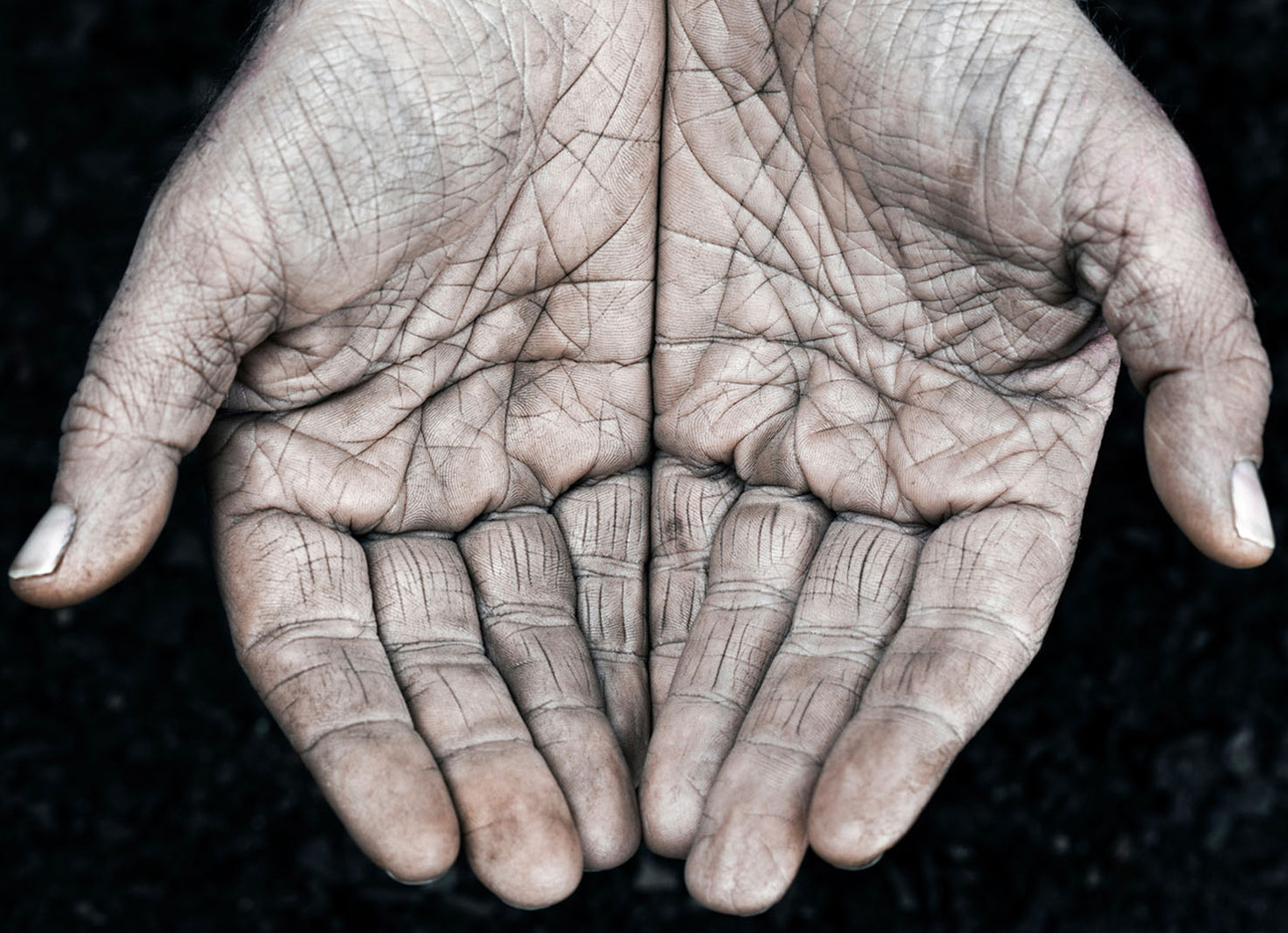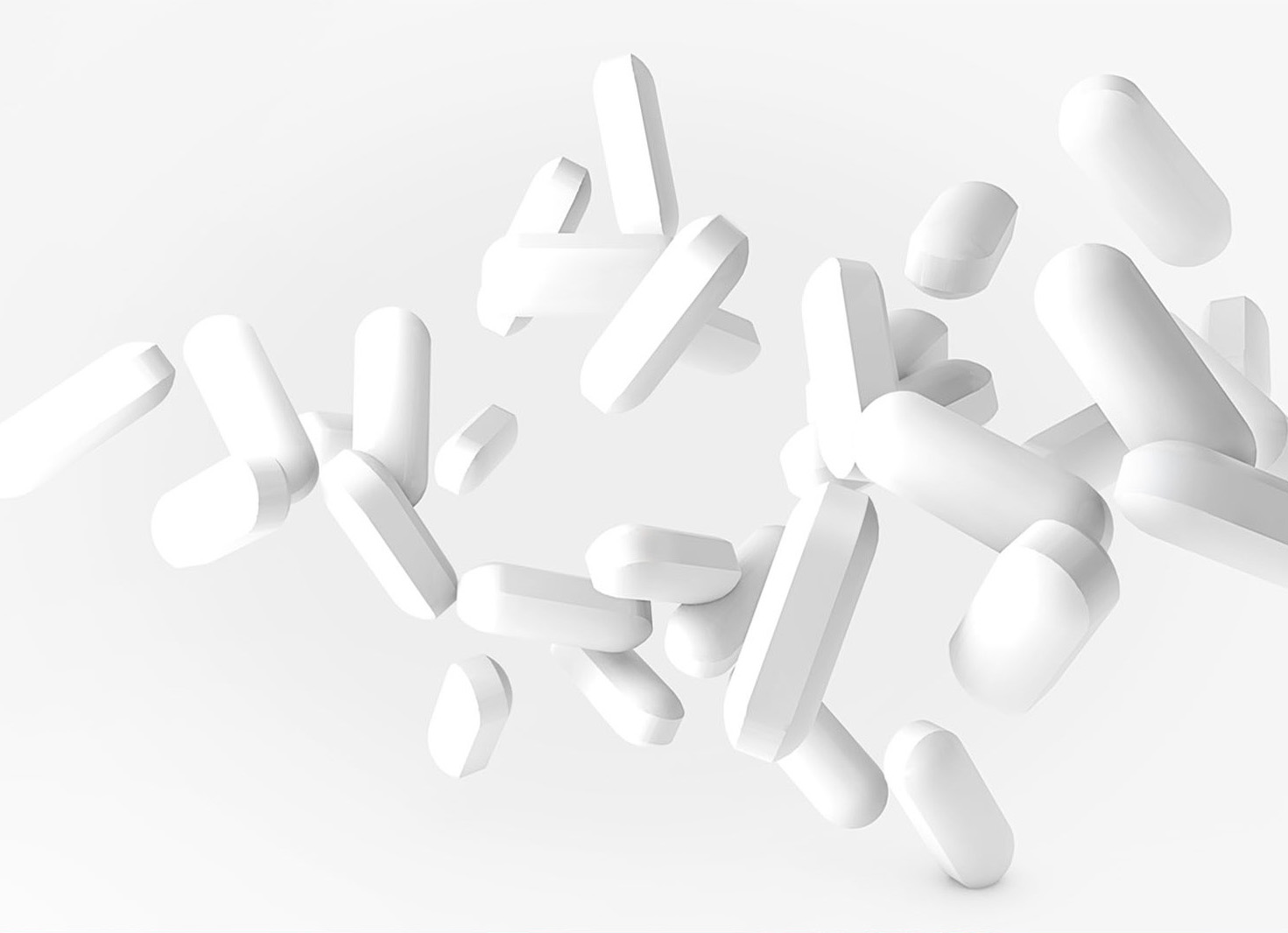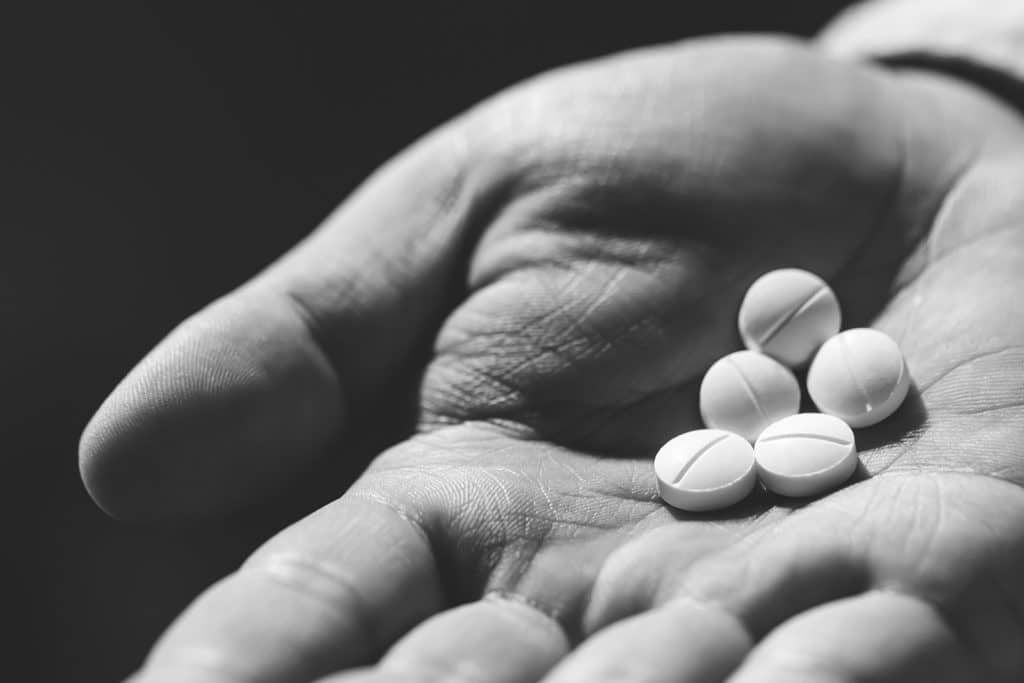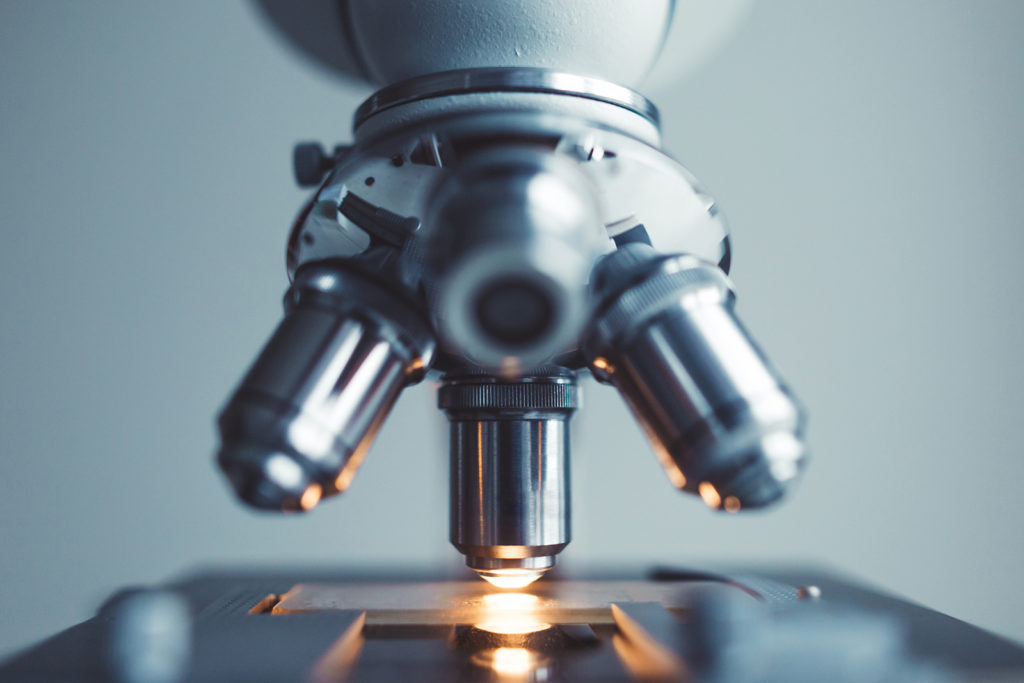HUMAN SKIN PRINTING
Facilitate the construction of human skin equivalents for wound healing research, cosmetic product development or drug delivery solutions.
HUMAN SKIN PRINTING
Create the complexity of human skin printing through a standardized, reproducible and automated 3D fabrication process.
Our expertise can help you achieve a highly physiologically-relevant skin model to scale.
Industrial user
TIME SAVING
Protocols using 3D bioprinting can yield mature skin constructs within 15 days, half the time of traditional casting methods. Less time in culture leads to a higher output production of skin models, whilst reducing the risk of failure through culture contamination.
REPRODUCIBILITY
Using a high-precision liquid dispensing robotic 3D bioprinter results in the repeatable production of skin models across plates and within days, and reduces one of the quality variables of non-automated methods.
PHYSIOLOGICAL RELEVANCE
Using an automated and software guided process to repeatedly and accurately place different cell types, biomaterials and bioactives in layers, results in more physiologically-relevant model constructs that can include the addition of melanocytes, the creation of skin follicles, and the creation of viable skin barrier models.
SKIN CONFIGURED R-GEN 200 3D BIOPRINTER
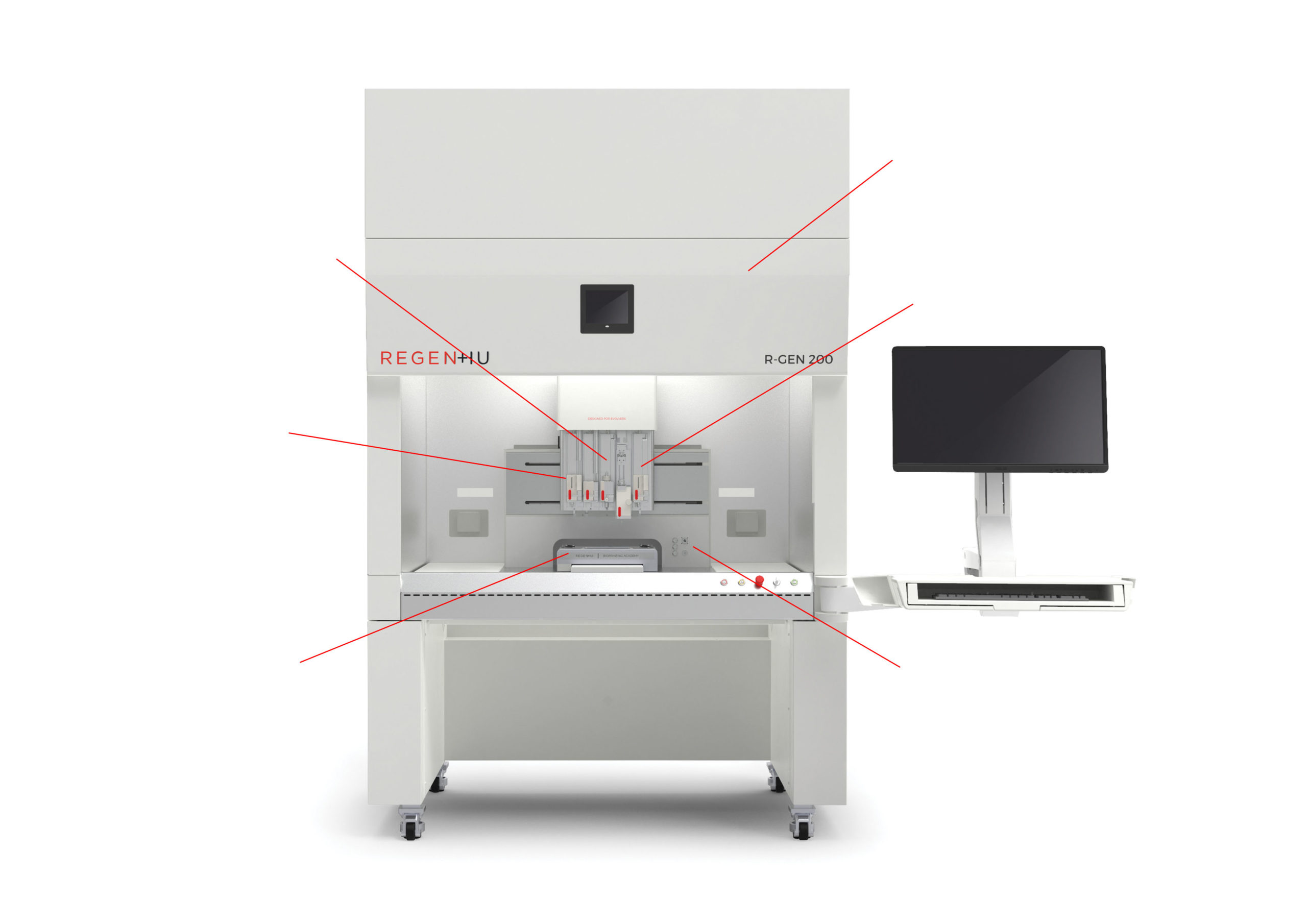
Our 3D bioprinters are used by skin researchers in both academia and industry.
Each of our bioprinters is personally configured to specifically address your research goals.
The R-GEN 200 bioprinting station is designed for printing cellular constructs, thanks to its biosafety enclosure and physiological temperature-controlled working zone.
Three printing technologies, supplied with the R-GEN 200 bioprinting station, which are each separately temperature controlled, provide a range of printing options, whether dispensing cell laden biomaterials at physiological temperature, or basal layer materials, such as laminin/entactin that require cooling to improve dispensing and deposition performance.
TABLET FORMULATION
Our 3D printers are designed to develop research into complex drug formulation and delivery challenges. This includes altering tablet architecture to control release rates, and producing personalized medicines by tailoring therapeutic treatment dosages to better address a patient’s specific needs through combining multiple active components into a single solid form dose.
Industrial user
ACCURATE, MULTIPLE MATERIAL PRINTING IN ONE PRINT PROCESS
The high-level of accuracy in material placement when printing using our industrial robotic systems, even when using multiple print technologies in one print run, enables the reproducibility of the process. This is essential when developing formulation protocols, including the incorporation of multiple APIs in one personalized, solid dose form.
RAPID PROTOCOL DEVELOPMENT
Precise and real-time control of printing parameters, and the ability to alter these during the printing process whilst visualizing the results, enables rapid identification of optimal parameters to achieve the desired process outcomes.
WIDE RANGE OF PRINTING TECHNOLOGY AVAILABILITY
Our printers are personalized to address specific requirements, with up to five printing heads and a selection of different printing technologies installed on the printer. The configuration can be altered to meet the changing demands of the project, so the printer is always able to extend the boundaries of what is possible.
TABLET CONFIGURED R-GEN 100 3D PRINTER
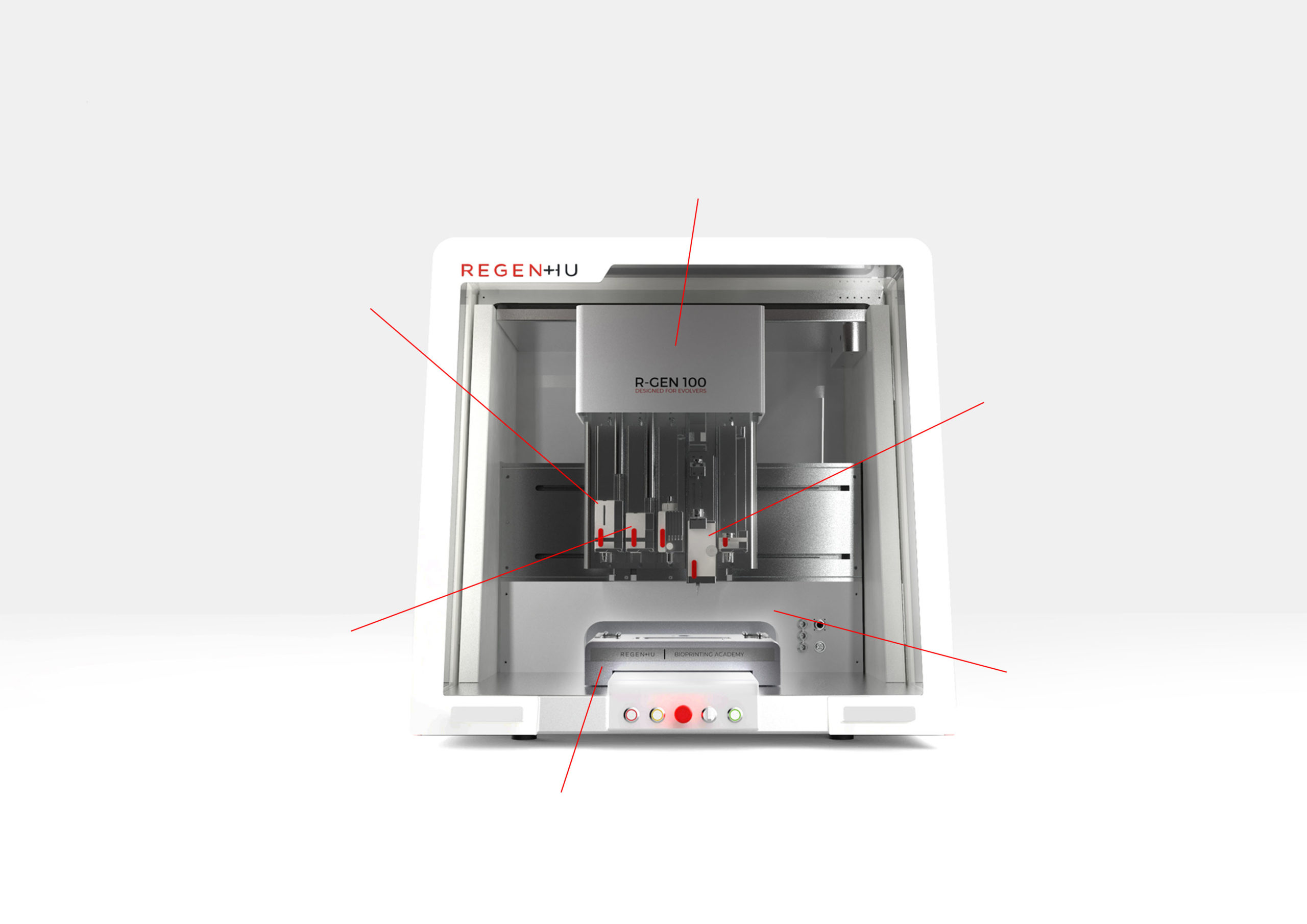
Our 3D bioprinters are creating novel formulation protocols in both academia and industry.
The R-GEN 100 3D printer is designed for highly accurate and repeatable printing of multiple materials during one print run. Combining up to five print tools with thermal control, different print technologies or multiples of the same print tool can be installed in one instrument. This provides the user with greater flexibility to print from single paste formulations or direct from powder without the need for intermediate products, ensuring weight reproducibility, disintegration times and friability conditions.
CELLULAR DRUG DISCOVERY MODELS
Using 3D bioprinters can create physiologically-relevant cellular disease models to test therapeutic hypothesis by accurately and reproducibly controlling the deposition of different cell types and support materials, providing a viable technology solution for drug discovery projects. Our scientific advisors are best placed to provide further information.
Industrial user
ADAPTIVE AND FLEXIBLE PRINTING TECHNOLOGIES
Configuring the instrument with a range of alternative printing technologies, which can all be used during one print protocol, provides the flexibility to use the best technology to achieve printing precision and high cell viability.
PHYSIOLOGICAL RELEVANCE
Using an automated process to accurately place different cell types, biomaterials and bioactives in layers, results in more physiologically-relevant model constructs.
REPRODUCIBILITY
Using our high-precision liquid dispensing robotic 3D Bioprinting Station results in the repeatable production of cellular models across plates and within days, reducing one of the quality variables of non-automated methods.
DRUG DISCOVERY CONFIGURED R-GEN 200 3D PRINTER
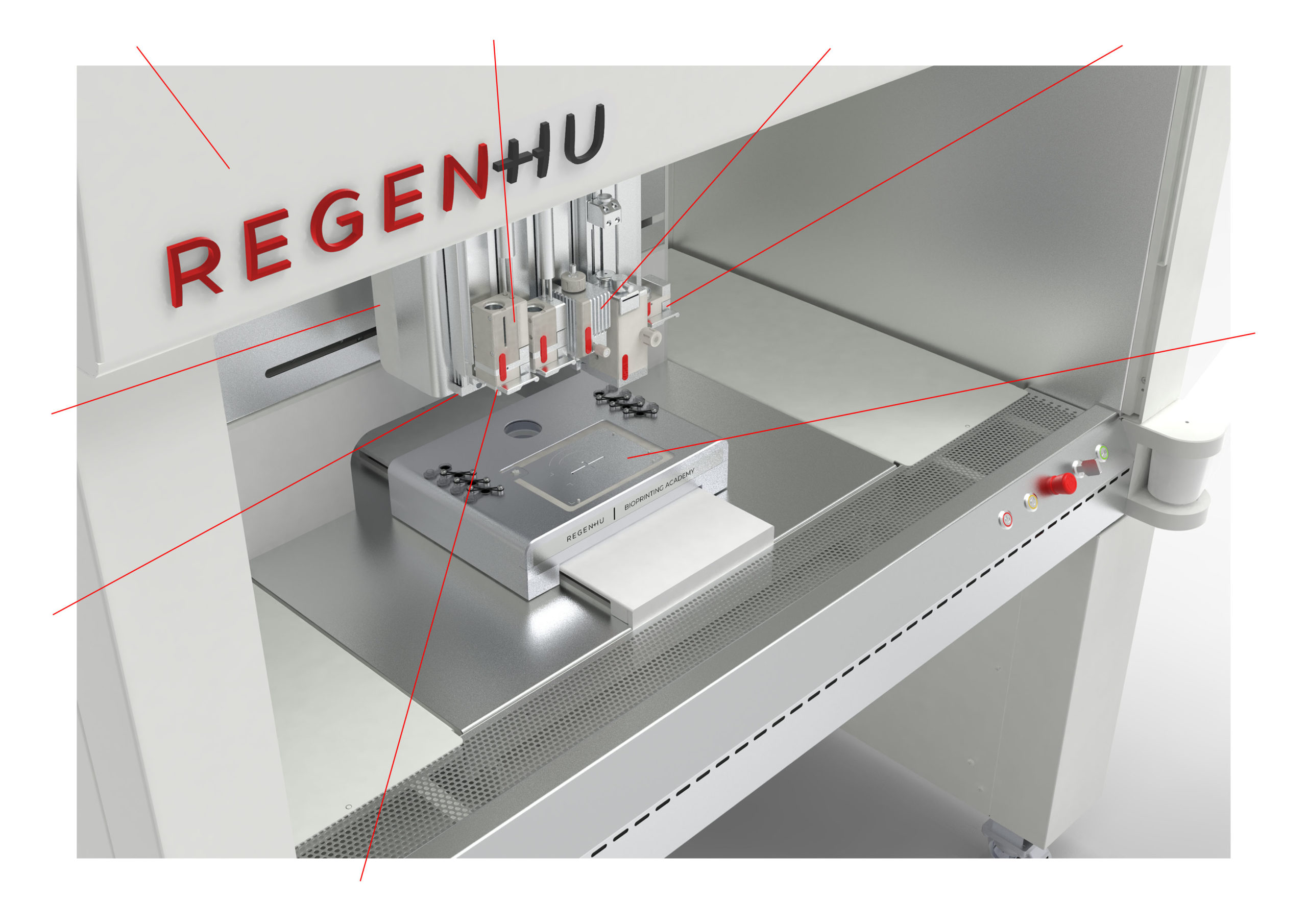
Our 3D bioprinters are widely used in building cellular discovery models, and are personally configured to your specific research needs.
The R-GEN 200 Bioprinting Station is designed for printing cellular constructs, with up to five printhead tools with individual cartridge and workzone temperature controls, a biosafety enclosure and physiological temperature-controlled working zone.
Three separate printing technologies supplied as part of the Drug Discovery R-GEN instrument, each with separate temperature control, provide printing options from droplets to high-precision biomaterial deposition to yield high cell viability and accuracy of cellular placement.

